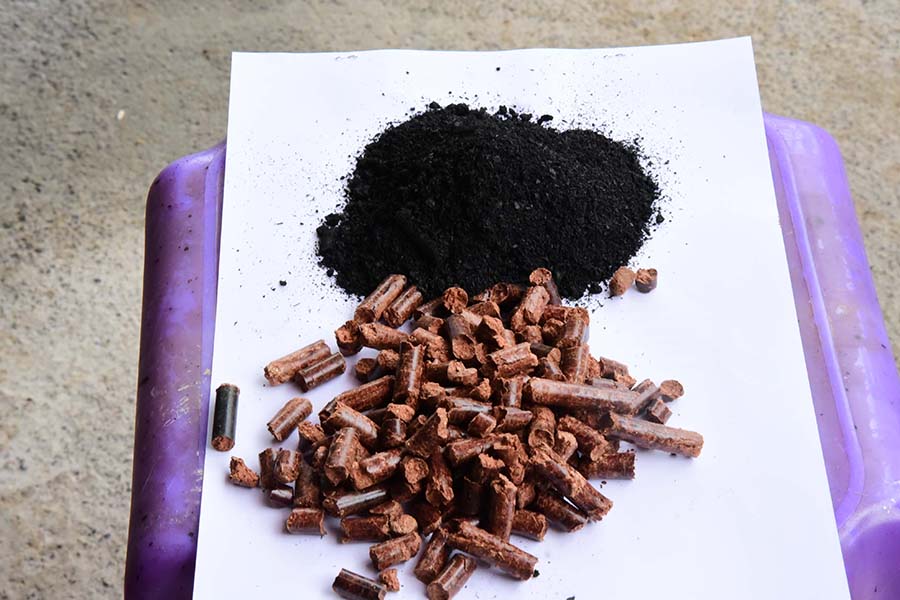National Pingtung University of Science and Technology (NPUST) is committed to sustainable development and circular economies. With the support from the Taiwan Forestry Research Institute, since 2018, NPUST has been implementing a project to assess biochar production processes for agricultural and forestry surplus materials, looking for ways to improve techniques and allow for greater benefits. This year (2019), it established the Center for Agriculture and Forestry Auxiliary Materials Recycling and Value Creation to further the cause. Agricultural and forestry auxiliary materials are generally referred to as agricultural and forestry wastes. The purpose of this center is to turn that so called waste into products of value. Currently they are using agricultural and forestry wastes to develop various biomass pellets or biochar pellets that can be used for different purposes, such as “aquaculture environment improvement”, which is currently being evaluated. Other projects such as “Evaluation of Biochar Applications in Urban Forest Soil” and “Reuse of Mushroom Bag Waste from Mushroom Farming Industry” are tackling agricultural and forestry wastes problems which are costly difficult to process. The opening ceremony for the new center was held on May 7th at the NPUST Wood Processing Technical Service Center.
NPUST President, Chang-Hsien Tai, said: “circular economy is an issue that the school is currently committed to. We hope to use auxiliary materials to increase output value and make these agricultural and forestry industries more competitive. This is also the purpose for the Center for Agriculture and Forestry Auxiliary Materials Recycling and Value Creation. By cultivating students with valuable skills, we hope to move towards the goal of sustainable development in the future.”
Professor Haw Farn Lan of the Department of Wood Science and Design said: “Recycling has always been the goal of the Department of Wood Science and Design. With cooperation from high-level talents from the Ministry of Education, and the school’s comprehensive equipment, we hope to develop a high-level set of operations for the industry in the future.” Assistant Professor Way Long of the same department pointed out that: “Biomass pellets can be used in a wide range of applications. If the applications can spread to the public in the future, and we can achieve industrial goals, it is estimated that the initial annual output will reach about 1,000 tons, creating an economy of about 13 million NTDs in value—and if biochar is further developed, the output value will be even more impressive!”
NPUST, which specializes in wood processing and scientific agriculture, is working to reinterpret the definition of agricultural waste. By making such products as biomass pellets and biochar pellets, which can be effectively used in various fields of agriculture, forestry, fishery and animal husbandry, they are helping to increase output value, protect the environment, and turn waste materials into gold.









